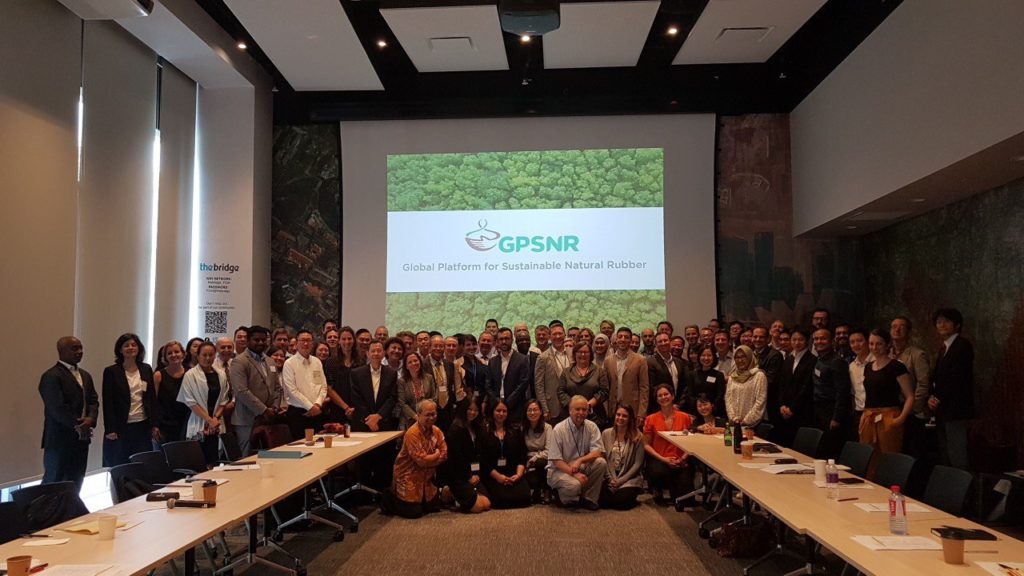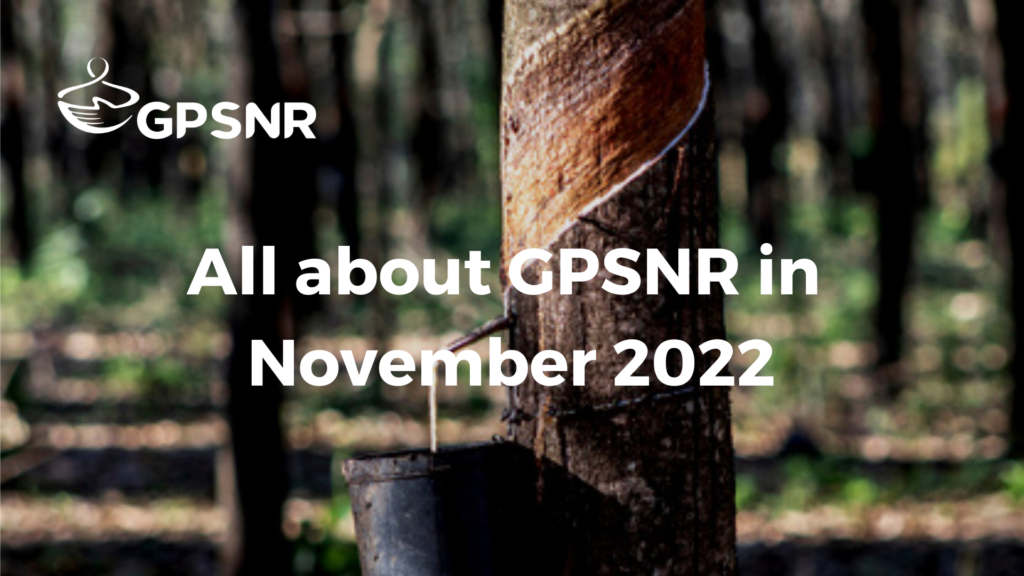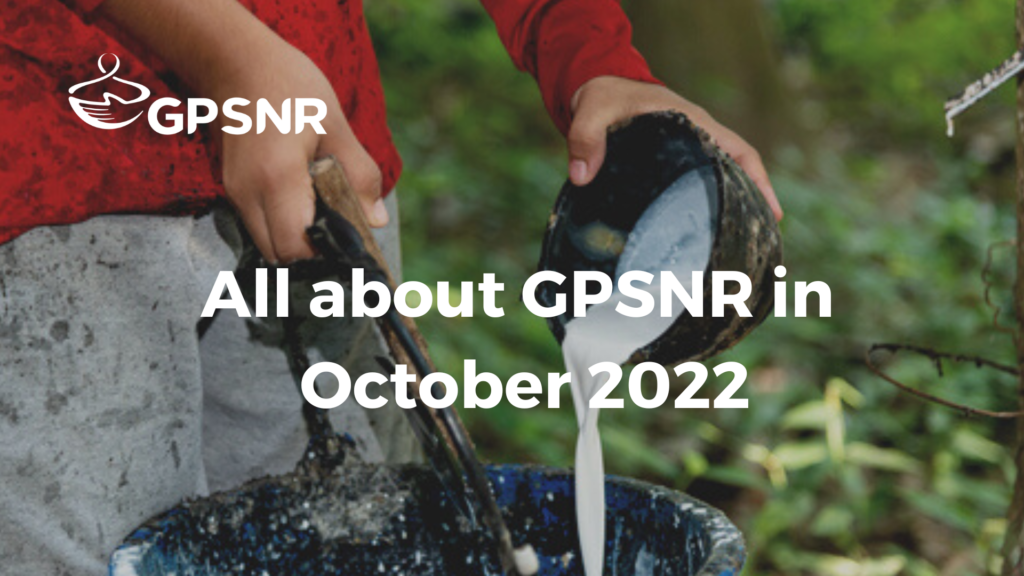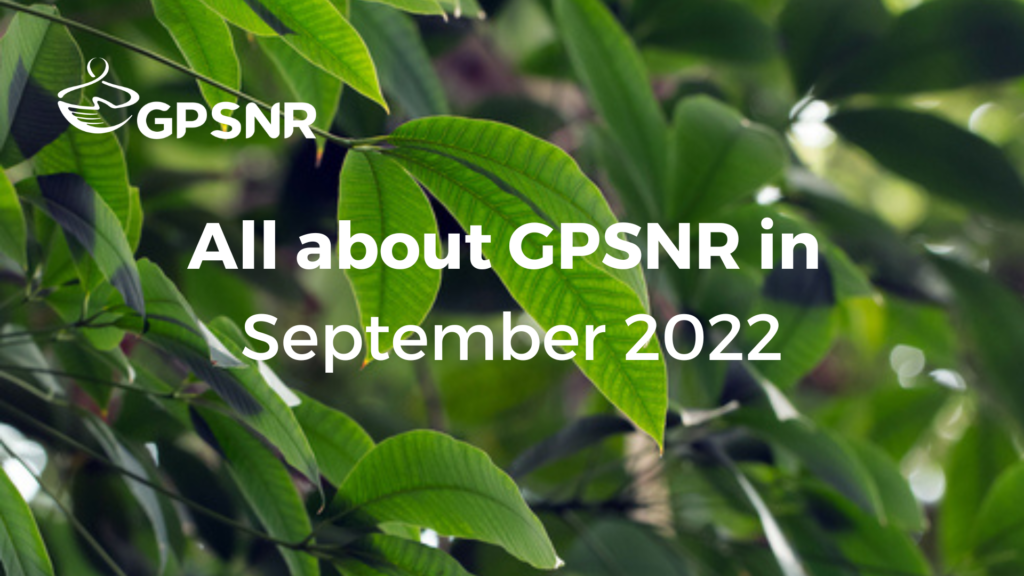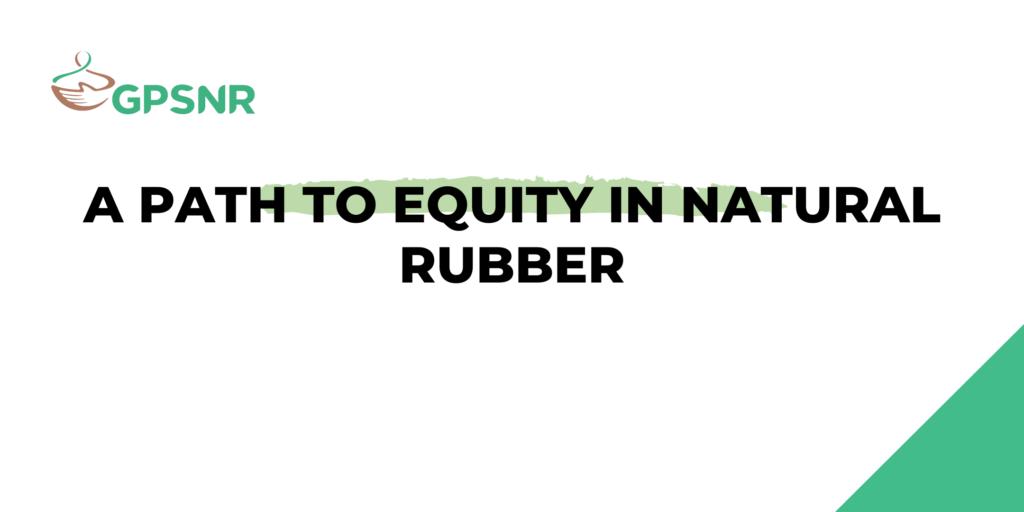Introduction & Background
The Global Platform for Sustainable Natural Rubber (GPSNR) is an international, multi-stakeholder, voluntary membership initiative seeking to lead improvements in the socioeconomic and environmental performance of the natural rubber value chain.
Development of GPSNR was initiated by the CEOS of the World Business Council for Sustainable Development (WBCSD) Tire Industry Project (TIP) in 2018. Members of the platform include tire manufacturers, rubber suppliers and processors, vehicle makers and NGOs. Representatives from each of these stakeholder groups have contributed to the development of the Singapore-based platform and the wide-reaching set of priorities that will define strategy and objectives.
Thailand is the largest producer of natural rubber (NR) worldwide, contributing 36% to
total global production. Majority of the NR production in Thailand is conducted
by smallholder farmers owning land of 2-4 hectares. The NR value chain in Thailand has historically been supported by various governmental bodies, now functioning under the umbrella of the Rubber Authority of Thailand (RAOT). This has led to exceptional performance by rubber farms, with an average yield exceeding 1.6 tons per hectare in 2019. However, the NR value chain in Thailand remains highly labour-intensive and currently
faces oversupply and low prices.
Thailand rubber has some specific particularities. It is grown in 4 main regions with different growing conditions: Traditional areas are in the South (the historical planting) and the East (Rayong and Chanthaburi provinces) while more recent developments were established in less climatically favourable areas: North and North-East (Esan). It has the particularity to be produced almost exclusively by smallholders, using higher tapping frequencies than other countries even in the neighbourhood, and to exploit rather low size farms (1.5ha or less). Share cropping among farmers and tappers is a common practice, beside family farming. Consequence of this is that although a good land productivity (kg/ha), labour productivity remains very low to date.
GPSNR, through the Smallholders Representative and Capacity Building Working Group (SCB WG) – Thailand National Subgroup, is currently inviting proposals for the dissemination of coaching materials and implementation of coaching on Good Agricultural Practices (GAPs) for smallholders in two regions (North and North-East) of Thailand, with a focus on one province per region.
The proposed coaching programs should be implemented in accordance with the
GPSNR’s environmental and social commitments and values, as outlined in the GPSNR
Policy Framework[1], and in compliance with the relevant Thai Agricultural Standard: Good Agricultural Practices issued by the Ministry of Agriculture and Cooperatives
of Thailand.
[1]
https://sustainablenaturalrubber.org/policy-framework/
Objectives
The overall objectives of the GAP coaching programmes are to ensure the long-term sustainability of rubber livelihoods and ecosystems by increasing smallholders’ productivity, yields, and socio-economic resilience, whilst safeguarding nature and the environment.
Expected Deliverables
Brief Justifications
The objective of the project is to update and disseminate the best Good Agricultural Practices (GAPs) recommendations to farmers in Thailand. This aims to ensure that planters have access to relevant knowledge and resources to enhance their productivity,
motivation, and income, leading to an improved livelihood.
The proposal should implement GPSNR’s proposed strategy for capacity building in
Thailand and provide brief justifications on the most suitable approach to
conduct coaching for smallholders in two regions (North and North-East) of
Thailand, with a focus on one province per region.
The GPSNR SCB WG – Thailand National Subgroup may prioritize funding for coaching in
regions based on relative productivity, coverage of existing coaching services,
socio-economic needs, recommendations of RAOT, or other considerations.
Proposed Coaching Approach
Possible approaches for consideration include (non-exhaustive): mobile coaching at local
community centres; building physical training centres; on-farm coaching; hybrid
coaching approaches. The proposal should consider which approach represents the
best fit for community needs and dynamics.
The proposed coaching approach should consider, but is not limited to, the
following priorities:
a. Coaching based on the train-the-trainers (ToT) model
b. Female and other minority inclusion and representation
c. Field coaching (or other approach) implementation plans
d. Integration of technology for data capture and ongoing engagement, and progress tracking (i.e. immediate and longer-term monitoring and evaluation)
e. Others (i.e. nuanced approaches to meet geographic/other needs; ongoing farmer community connectivity and interactions; engagement with local or regional officials
Service providers are to adapt the provided GPSNR GAP coaching approaches. The GPSNR GAPs are created to serve as general best practices and principles for global usage and are periodically reviewed and updated to reflect the sector’s latest understandings.
The service provider is expected to work with GPSNR to adapt the general GAPs to align with local situations in Thailand and comply with the relevant Thai Agricultural Standard: Good Agricultural Practices issued by the Ministry of Agriculture and Cooperatives of Thailand. This will build trust with smallholders and optimize the coaching outcomes, particularly in terms of language, technical specificities, and local needs.
Service providers should also translate the relevant Thai Agricultural Standard: Good Agricultural Practices issued by the Ministry of Agriculture and Cooperatives of Thailand from Thai to English.
The GPSNR GAPs consist of the following four modules:
1. Rubber Plant Material
2. Establishment and Maintenance of Plantations
3. Latex Harvesting
4. Diseases and Pests
Service providers are also expected to operate in line with principles and values set forth in the GPSNR Policy Framework such as commitment to environmental protection and sustainability, zero deforestation, community engagement and FPIC etc.
The selected service provider may also be expected to work closely with the GPSNR SCB WG – Thailand National Subgroup to fine-tuned or further augment the provided coaching materials.
Key Metrics
To prevent risk of false correlations, it is essential to collect baseline data on participating smallholders before the GAP coaching begins. The impact assessment should compare the participating smallholders’ data after the GAP coaching to accurately measure their improvement.
It is also important to collect control group date of smallholders who did not participate in the GAP coaching programmes to ensure any changes observed are due to the GAP coaching and not other factors. Additionally, being aware of external factors such as weather and market prices can help to better assess the results.
The proposal should elaborate on how the following key metrics can be achieved and measured:
1. Total number of smallholders coached
2. Total number of trainers or coaches coached
3. Year-by-year increase in smallholder productivity and smallholders engaged
4. Inclusivity across gender, youth, geographic regions, and ethnicity (e.g., indigenous, or other minority communities)
5. Monitoring and evaluation of coaching progress and outcomes
The proposal should also identify other key metrics of importance not listed above and describe how they will be achieved and measured.
Submission Guidelines & Requirements
The following submission guidelines & requirements apply to
this Request for Proposal:
1. Proposals will only be accepted
from individuals or firms with experience relevant to this project.
2. A technical proposal must be provided that is not more than 4 pages. This technical proposal must provide:
• A workplan that outlines all key activities of the deliverables
(refers to Expected Deliverables above)
• Timeline and key stages of operations (refers to Project
Timelines below)
• Budget, including detailed breakdown of expected manpower,
logistics, and costs expected to run coaching programmes for an initial three
years, beginning in 2023 (refers to Budget below)
• Description of past work and technical expertise that is relevant
to this RFP
• A list of project team members with their roles in the project and
associated qualifications
• Proposals must be signed by a representative that is authorized to
commit bidder’s company.
3. Proposals must be received prior to the 30 June 2023 to be considered. Proposals should be submitted to cheewei@gpsnr.org for consideration.
GPSNR reserves the right to amend the scope and budget of this RFP to get the most suitable consultant for each topic.
Project Timelines
|
RFP Publication
|
4 May 2023
|
|
Submission deadline for proposals
|
30 June 2023
|
|
Evaluation of proposals and follow up
|
21 July 2023
|
|
Contract Award
|
July 2023
|
|
Preparations and Implementation for 1st year
|
August 2023 – July 2024
|
|
First Full Review
|
August 2024
|
|
Preparations and Implementation for 2nd year
|
August 2024 – July 2025
|
|
Second Full Review
|
August 2025
|
|
Preparations and Implementation for 3rd year
|
August 2025 – July 2026
|
|
Third Full Review
|
August 2026
|
Service provider will also provide fortnightly or monthly progress updates to the GPSNR SCB WG, or on an as-needed basis.
Budget
The Platform is anticipating that a total budget of no more than 216,000 USD be allocated to this engagement, depending on the proposed coaching approach.
Payment terms shall be:
• 20% at the signing of the contract
• 20% at the first round of coaching conducted
• 20% upon First Full Review (August 2024)
• 20% upon Second Full Review (August 2025)
• 20% upon Third Full Review (August 2026)
Evaluation Factors
GPSNR will rate proposals based on the following factors:
1. Responsiveness to the requirements set forth in this Request for Proposal
2. Relevant past performance/ experience
3. Samples of work
4. Cost per farmer, and other aspects of the proposed coaching approach of programme
5. Technical expertise/experience of bidder and bidder’s staff
6. Proposed timeline of operations
GPSNR reserves the right to award to the bidder that presents the best value to GPSNR as determined solely by GPSNR in its absolute discretion.
gulation consolidated text 20-12-22
View RFP Document here


